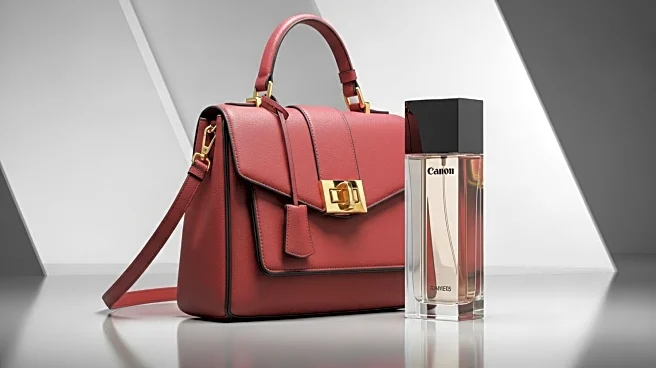What's Happening?
LVMH, the luxury conglomerate, is increasing its presence in South Korea as geopolitical and economic uncertainties impact consumer spending in the US and China. The company plans to expand its flagship stores for Louis Vuitton and Christian Dior in Seoul's Cheongdam district. Dior's revamp, expected by 2027, will include a permanent restaurant. Additionally, Bulgari and Tiffany & Co. are considering opening flagship stores in South Korea. The move is driven by South Korea's strong luxury market, which saw a 10% growth in sales last year, reaching $3.3 billion. The market benefits from domestic shoppers and increased tourism, particularly from China and Japan.
Why It's Important?
The expansion into South Korea represents a strategic shift for LVMH as it navigates challenges in other major markets. The US faces import tariffs that have led to price increases, potentially driving affluent consumers to purchase luxury goods abroad. Meanwhile, China's premium goods market has contracted significantly, and Japan's luxury sales are declining despite a weak yen. By focusing on South Korea, LVMH taps into a resilient economy and a growing consumer base, potentially offsetting losses in other regions. This move could influence other luxury brands to follow suit, reshaping the global luxury market landscape.
What's Next?
LVMH's expansion in South Korea may prompt other luxury brands to increase their investments in the region. As the company opens new flagship stores, it could lead to increased competition among luxury brands vying for market share. Additionally, the success of these expansions may encourage LVMH to explore further opportunities in other emerging markets. The developments in South Korea could also impact global luxury pricing strategies, as brands adjust to varying economic conditions across different regions.
Beyond the Headlines
The focus on South Korea highlights the shifting dynamics in the global luxury market, where brands must adapt to changing consumer behaviors and economic conditions. The expansion may also reflect broader cultural trends, as South Korea's influence in fashion and entertainment continues to grow. This could lead to increased collaborations between luxury brands and Korean artists or designers, further integrating Korean culture into the global luxury scene.









